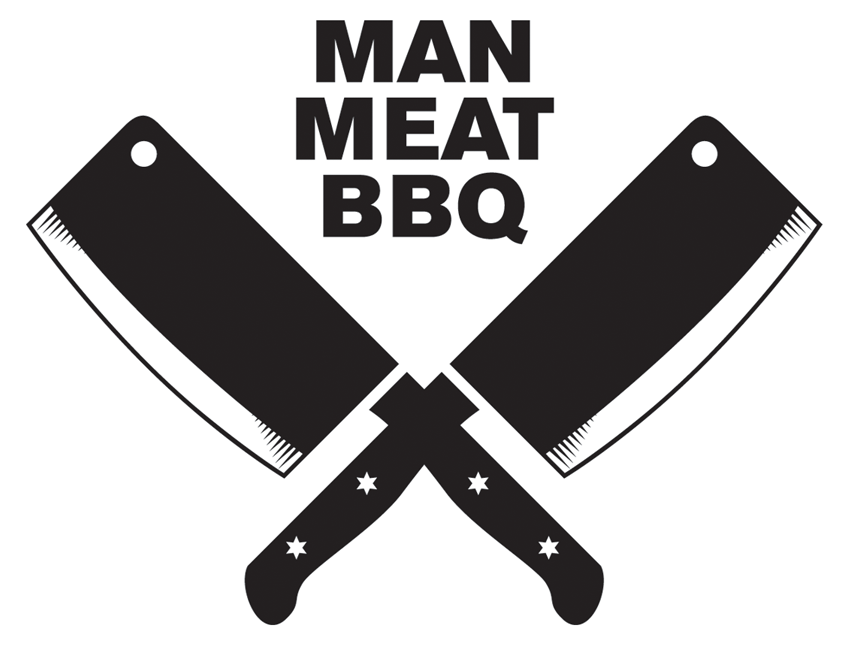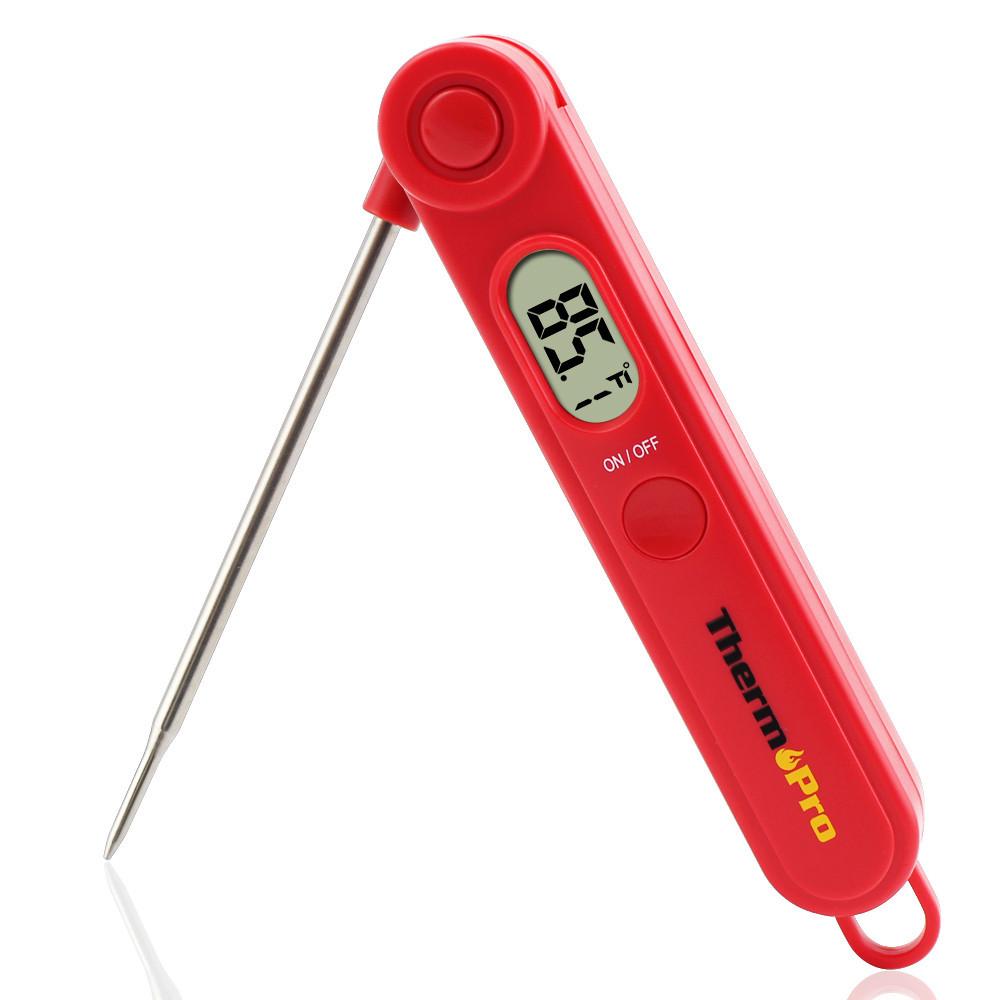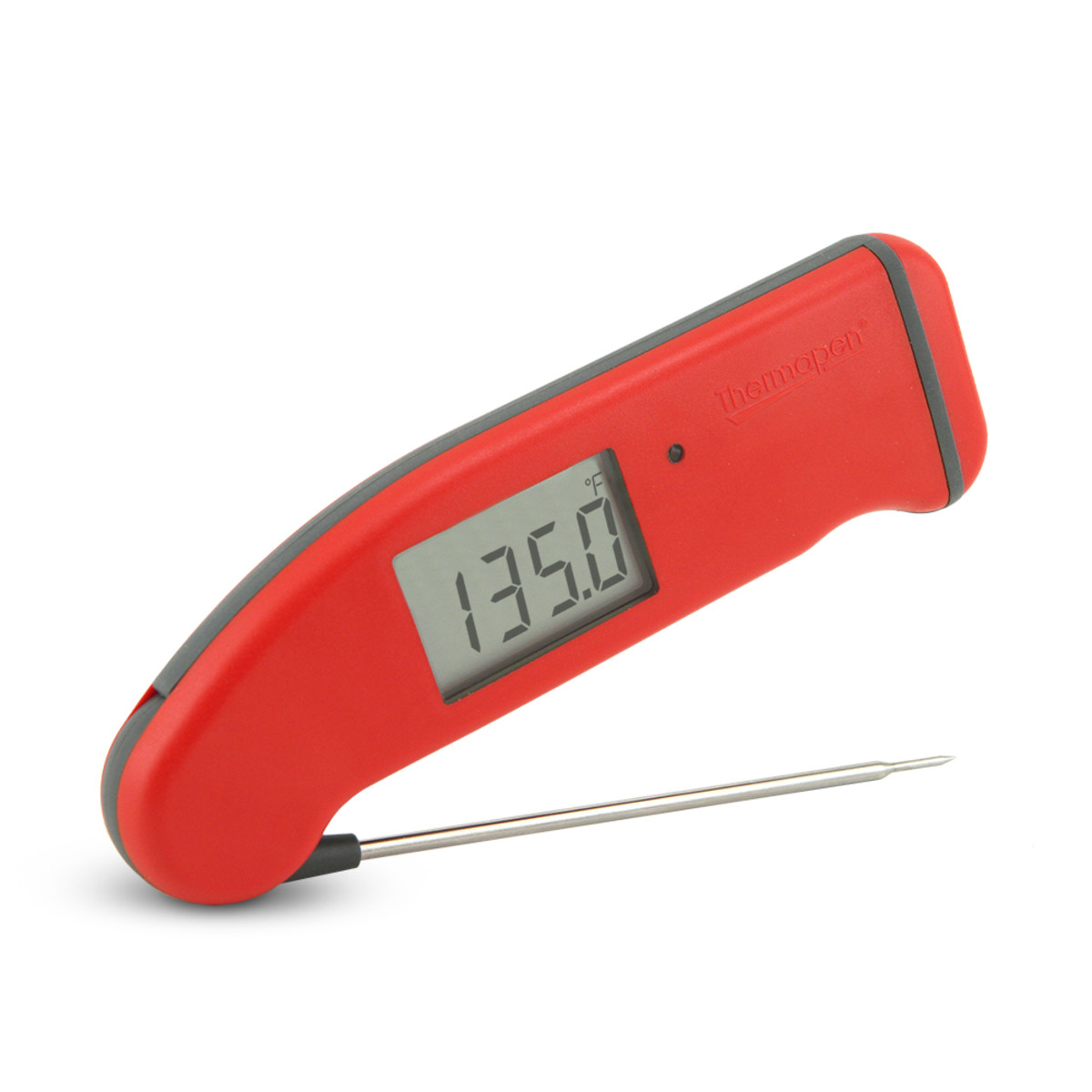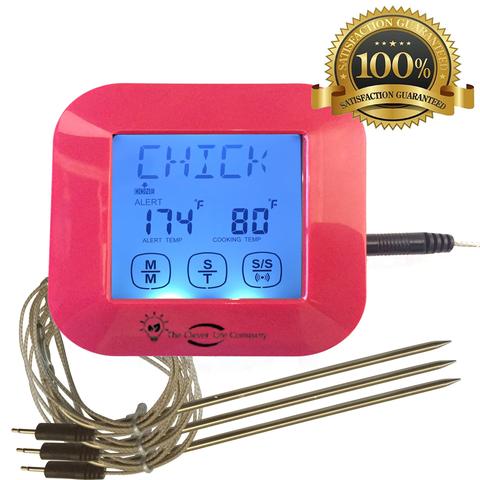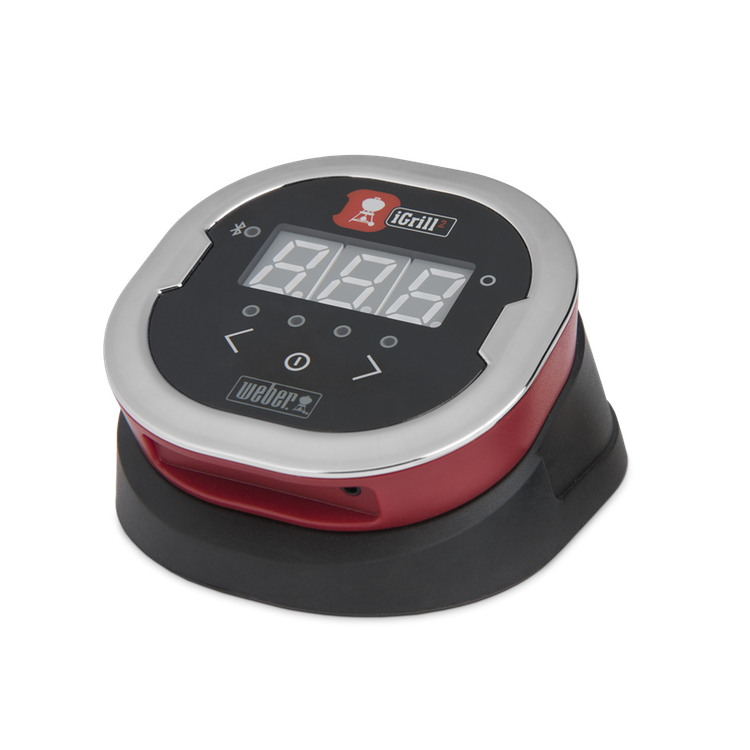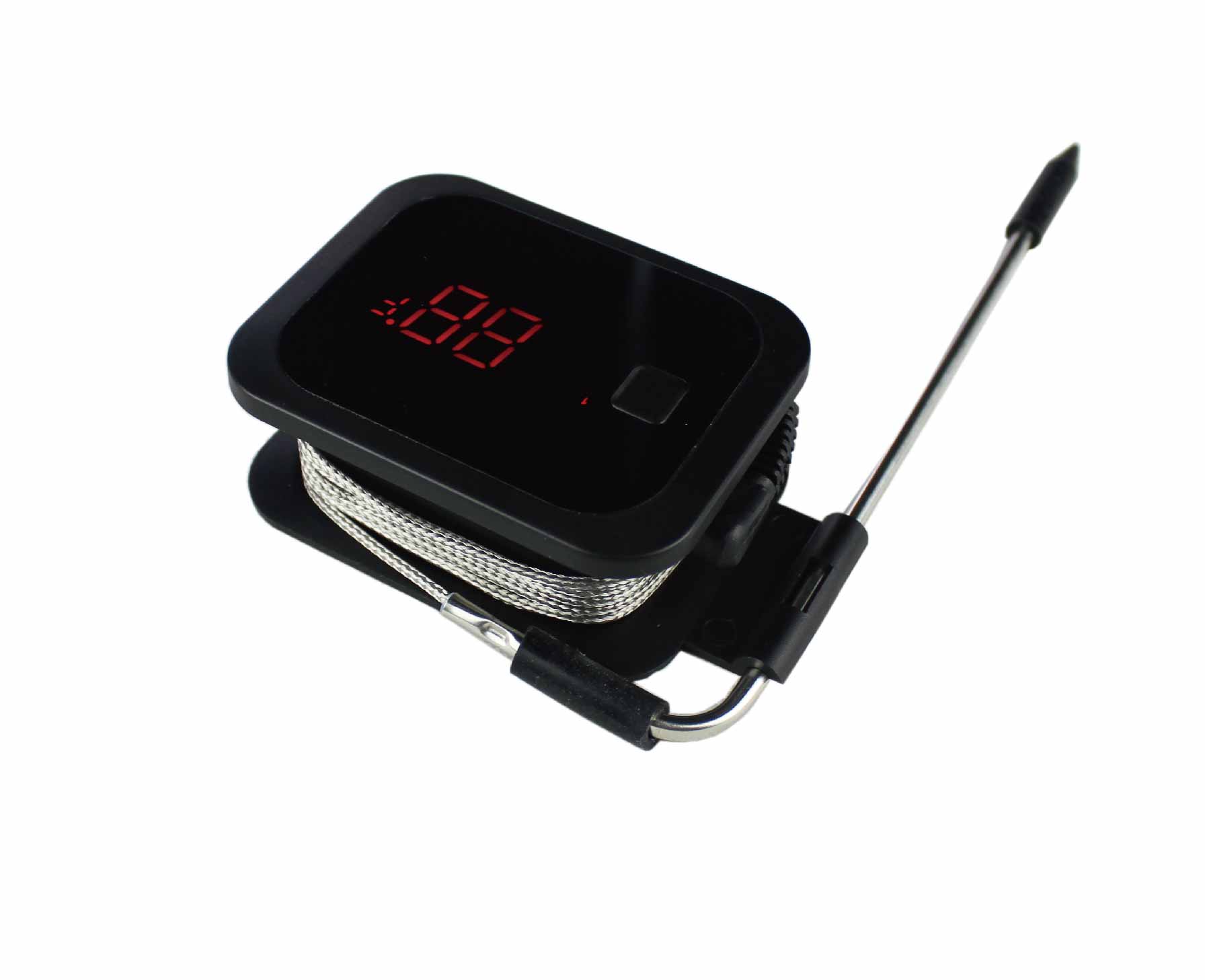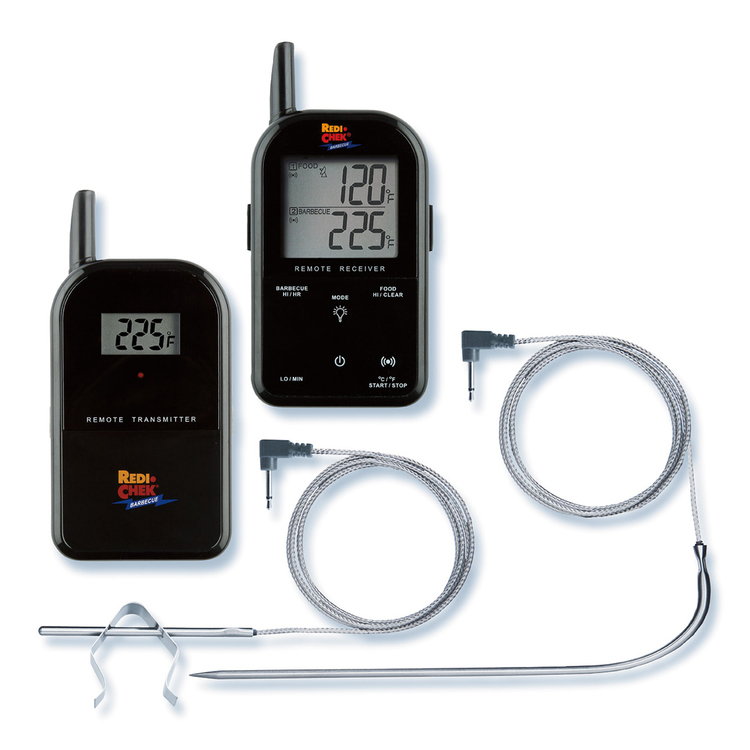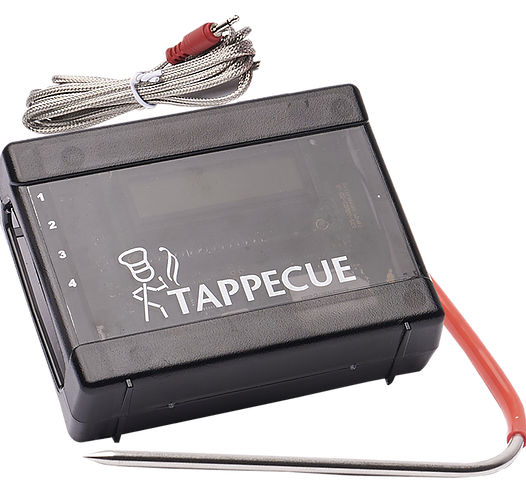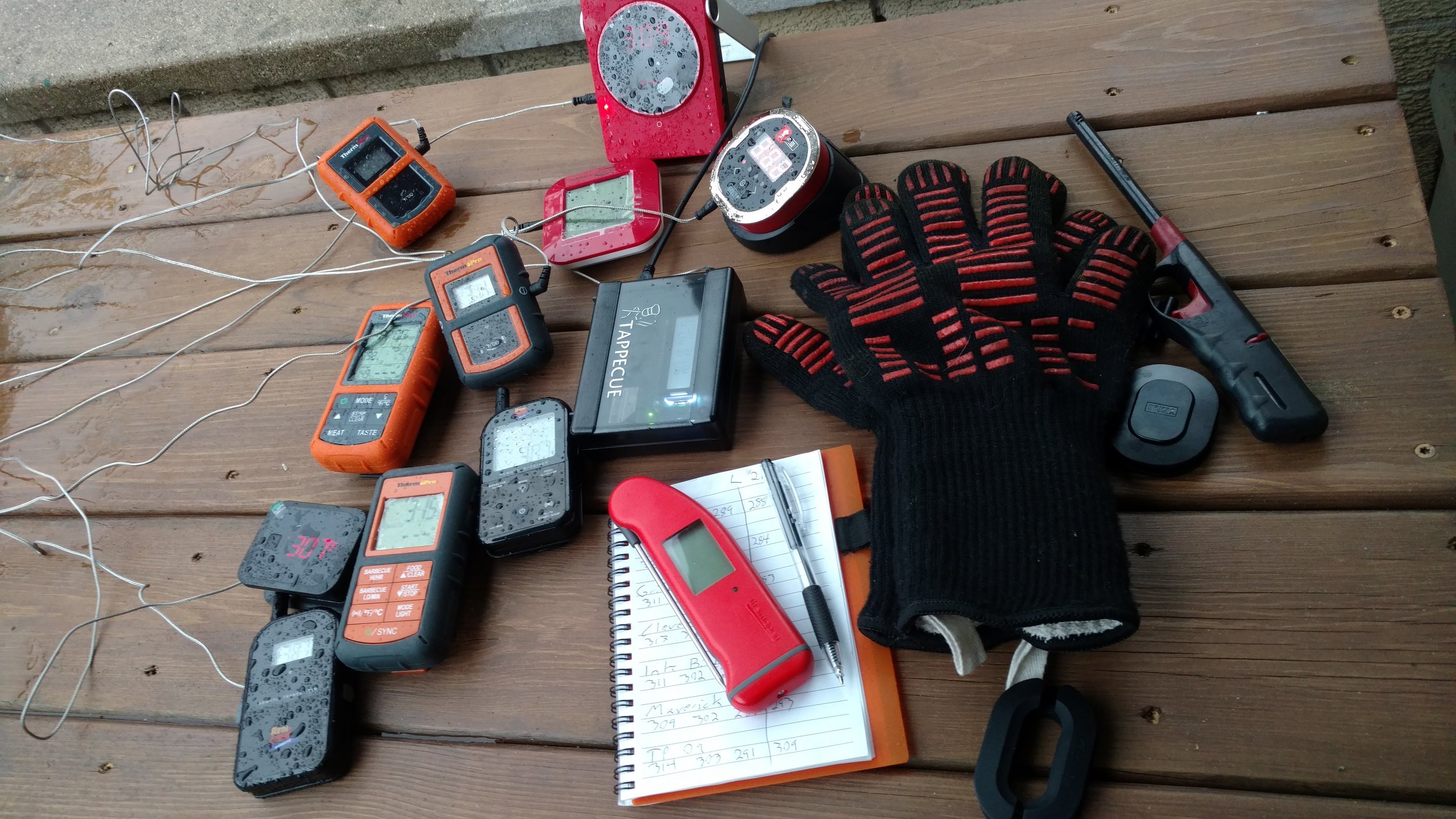Okay friends, in my last post, I gave you all the raw data behind my thermometer test. If you haven't read that, go get there now and come back when you are done!
Now I get to add my perspective and choose my picks. First off, I wanted to mention a couple things related to all of the thermometers.
Your weakest link is your probes. Here is the deal. With every thermometer I have seen, if you look at the reviews there are tons of bad reviews because a probe failed. Let's face it, probes do fail and they will continue to. However, most of the time this is a human error. Despite the sealed plastic container of the thermometer designed to withstand a hurricane, the probes are not in anyway waterproof. Don't go soaking them in water after a cook to make them shiny again. They might shine, but chances are they won't work. So do yourself a favor and handle the probes appropriately. On a side note, in talking with The Clever Life Company, they are currently sourcing waterproof probes for a model to be released soon. That is kinda a game-changer there and I am anxious to see it.
While we are on the topic of probes... Yes, there are differences in probes and you need to do your due diligence. Can a probe withstand 500 degrees or not? Do you need an ambient probe or not? Etc. The answers vary for each model. Now the iGrill is one thermometer that while a meat probe will work marginally for ambient temp, they have a specific ambient probe designed just for this. That is not the case for every model. On many models, the meat can be used equally for internal temp, or ambient.
Long story short, if you are going to be reliant on a thermometer, do yourself a favor and get a backup probe or two. They are cheap and they will save a cook if things go south cause you put a probe in the dishwasher.
Enough about that though. As we saw last week no thermometer failed so how do I pick? For me, this comes to a couple different categories.
First, how many probes? I most commonly cook with 2 probes. However, when I need 4, I simply need them and don't really want to use 2 thermometers. That is me. For many though, 2 probes will do everything you need it to.
Second, connectivity. This is purely a personal choice. If all your cooks are 2 hours then yeah, it probably isn't a big deal. But you might want to take a nap when you have a 12-hour cook. If that is the case, you probably want to consider something that will have the needed range.
Third, everything else... Like I said from the beginning, most of this is personal to how you cook and what is important to you. Maybe you own a pellet cooker :( If you do, you are going to be far less concerned with an ambient temp read then someone who cooks on a kettle. You get the idea.
In the words of Mikey...Without further ado, now I'll give you my take on them all.... one by one:
It is an "Instant Read" and will run you about $10. Here is the thing, save your 10 bucks. Sure it reads temp fine, but it is slow. Given the fact that the speed of it, in reality, is so far from "instant" I just cannot see myself rely on this for anything.
If you have any reason to get an instant-read thermometer, there is really no other one to get. Yes, it will run you $100, but you get something you can rely on time and time again. There is a reason this is the thermometer you see every pro use, simply put, it works. Additionally, it comes with a factory certified calibration which was done on that actual thermometer. These guys know thermometers and even at the price, this will not disappoint.
This is a great thermometer for the price. It is what it is, there is no remote read, it accepts one probe (even though it provides 3) but it works with accuracy and precision as well as every other thermometer on the market. It comes in at a price of about $30 and it gets you an accurate temp. My biggest complaint of it actually was that it included 3 probes while only accepting one. If you buy based on the photo and don't read, it could be a bit misleading. On the flip side with this, I can have 3 probes in my cooker in different pieces of meat and just plug each one in to get the read without opening the cooker. It is basic but it claims to be nothing but and in the end, it delivers. One note, the probes are only rated to 482, so you should at least know that first.
The iGrill kinda built the world of app-based thermometers. A lot of people love them, a lot of people don't. But here is the deal. The design makes them the apple of meat thermometers, it looks great, it is thought out, and it works. Even down to the simple elements like the brightness of the display. Of all the thermometers I tested, this is the only one I could read from 5 feet away. Test for test this one does exactly what you need it to and it does it with ease and style. Even the little plastic pieces to wrap your probes into are well thought out. At $100 it is definitely a keeper. The only negative I have on this is BlueTooth. I would love to be able to get the temps at a longer range. But if you can live with the short range, this is your best bet.
Bottom line is, every complaint I have heard about the iGrill comes to 2 things: the range or probe failure. Yup, it's BlueTooth, you know that going in so don't expect to get a beer at you're neighbors house without it dropping. Probe failure, it's gonna happen on em all. Take those complaints out of the mix and you have a damn good thermometer.
This one I am a bit torn on. I love the fact that it takes up to 6 probes. I love the design in concept and I love the probes (look at them if there is such a thing as a sexy probe, these are it). But it almost acts like a wannabe iGrill. It is still BlueTooth. The design doesn't completely translate to reality as it does in concept. The display is dim and has a ton of glare in the sun. The plastic is cheap looking. If it wasn't for those sexy probes it would kinda be like the discount store iGrill. But it works! If you have a need to possibly use more than 4 probes, I would not hesitate to buy in a heartbeat. If you don't, at $89 I would probably save up another ten bucks and go iGrill. Don't get me wrong, this is a great product and it works and if I tested this alone by itself I would have given it a great review. But in comparison, for the money, there is more out there.
I will be honest, I kinda expected this little guy to fail. I mean seriously, it is BlueTooth, has an app, and 2 probes all for $30. Truth is, this is about the best $30 you can spend. There is nothing fancy here. Directions could be better, design could be better a little. But it works really well. For $30 even as a backup, you really can't go wrong. For someone who is a bit more casual on the BBQ side, this is an absolutely great choice. No, you don't have more probes, no you don't have this really cool looking thing on your cooker, and yes you have the damn probes that self-destruct at 482 degrees. But it does work and it works well. Again, it is $30, C'mon.
These thermometers, in general, are great. They are consistent, they work, and they are not handcuffed by the short range of BlueTooth. They don't necessarily have the polish you would find with something like an iGrill, the readout on the transmitter is really only useful if you are looking directly at it. But from a function side, they both work very well.
There are subtle differences between the TP-08 and its big brother, the TP-20. Performance-wise the two are really inseparable. While the TP-20 will cost you just over $55, the TP-08 comes in at $45. The big difference between them comes in the temperature probes and the inclusion of preset temp ranges for different cooks. The TP-08 is streamlined without the presets, which honestly, I like better. I know and research my cooks and the temps I want, I'm not going to be reliant on a preset. If you are like me, the absence of the presets on this model makes it much simpler to set up a cook the way you want it. On the downside, the TP-08 includes one ambient probe and one meat probe. While this fits most roles it begged the question since the TP-20 doesn't have an ambient specific probe can the meat probe be used for ambient? To answer this I reached out to ThermoPro.
Per ThermoPro the meat probe can be used accurately for both internal temps as well as ambient. So on that front alone, I am more apt to buy the TP-20 simply from the versatility factor.
Personally, I feel this is too little of a difference between models. I would love to see something like the ability to handle 4 probes instead of two on the TP-20. But I am not a product designer so I will stick with using. If I had to choose between the two, honestly I would probably buy the TP-08 and use the money I saved on buying a backup meat probe for it.
For RF-based thermometers, this is definitely my choice. Coming in at the same price point as the ThermoPro TP-20 there is definitely a better feel with this one. Yes, they are both consistent, both accurate. Yet the Maverick feels like the one I can accidentally leave outside by my grill, not realize it until 3 rain storms later and have total confidence that it will just work. It is simple, it is small, and it is well designed for life. If you are fine with 2-probes, but you want something that will be loyal cook after cook, Maverick is your choice.
Of all the thermometers I got to use for this test, the Tappecue I was most excited about. Now let me set the stage, this is less of an accessory as it is a tool. If you cook twice a month and just need something to back you up, this isn't your choice. But if you cook and I mean really cook Tappecue has got your back. First, it is wifi, so range? If you have a cell phone with internet access you are in range. Yes, you could theoretically check your cook from halfway around the world.
But that is only part of the story here. Similar to the app-based BlueTooth models you get charts which track your temp throughout the cook. The BlueTooth app's kill off that data once you start a new cook. Tappecue, you get to save it. Wanna go back through your last 10 cooks and see when your heat is dropping, now you can.
Being a wifi only device you are probably saying: But it needs to connect to my wifi network, so what happens if I am cooking somewhere offsite where there is no wifi network to connect it to? They have you covered. The offline mode actually lets the unit create its own wifi network that you can connect to and check temps with a range similar to the BlueTooth models.
With the Tappecue, you lose a lot of the polish you see on many models, but what you gain definitely outweighs those losses. I only have two complaints of the Tappecue. First, it is not easy to set-up. I know my way around a firewall or two and I found it confusing. Second, it needs to be plugged in. Yup, no batteries here so if you don't have an outlet near your cooker it could pose a challenge. On the upside, it is powered by a USB, so you can use a power bank like you'd use to charge your phone to keep it going, but it isn't an ideal set-up. Like I said, this is the power tool. Features which make sense for people who BBQ all the time.
Summary
So there you have it. The bottom line is you don't have an excuse to not monitor your temp. Whether you are an occasional griller or a seasoned pitmaster, there is a thermometer for you.
Oh yeah, we forgot about our old friend the dome thermometer on the kettle. Look at it like it's a hood ornament cause that is all you can rely on it for. Sure there are times when it is spot on accurate. But there are times when it is also useless. If I am cooking, I want tools I can rely on and every thermometer on this list can be relied on to varying degrees.
This is not all available thermometers by any means, it is a wide range of the types, styles, and brands on the market. Keep this conversation going in the MMB facebook group and share your personal experience.
https://www.facebook.com/groups/1960615054162384
Finally, I want to thank each and every thermometer manufacturer for making this review possible. Now go cook something already!
Until next post, remember kids.....CHUNKS not chips!
